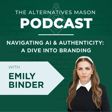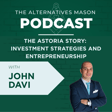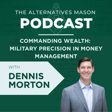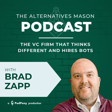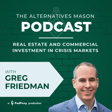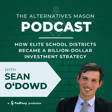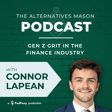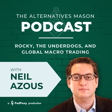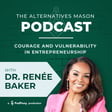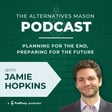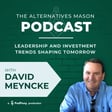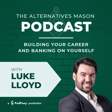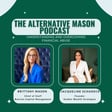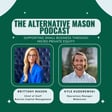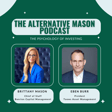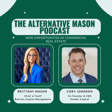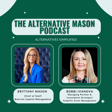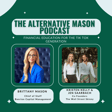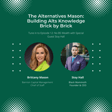
The Alternatives Mason: Building Alts Knowledge Brick by Brick | Episode 5 | The Authentic Advisor featuring Vance Barse
Welcome to The Alternatives Mason: Building Alts Knowledge Brick by Brick. Banrion Capital Management uses technology to help independent advisors scale and educate themselves on alternative investments. Since education is such a big piece of the Banrion mission and business, we are excited to kick off this series to dive into the nits and grits of the alternatives space. Episode 5 "The Authentic Advisor" features Vance Barse, CPWA®, AIF® , Wealth Strategist & Founder of Your Dedicated Fiduciary®.
Vance graduated from the University of Maryland with a B.S. in Neurobiology & Neurophysiology. He began his career in financial services with Altegris Investments as Regional Director of Intermediary Relationships. He consulted leading private wealth management firms and financial advisors across the nation.
Vance brings a unique perspective on wealth management as he’s seen the business from the inside. At Altegris, his clients were leading financial advisors at banks such as Merrill Lynch, Morgan Stanley, and UBS; independent broker-dealers such as LPL, Ameriprise, and Raymond James; registered investment advisers; and family offices. This has allowed him the deep expertise in services and strategies that financial advisors offer – and, more importantly, the services and strategies they often don’t offer. Who you have serving you can make a big difference, particularly when it comes to complex planning strategies.
After nearly a decade in his role with Altegris, Vance became a financial planner and founded Your Dedicated Fiduciary® with the desire to positively impact those he serves by filling in the gaps often left behind by other advisors.
Learn More about Your Dedicated Fiduciary
Follow on LinkedIn Vance Barse
Follow on 𝕏 @VanceBarse
Subscribe to Vance's YouTube Channel @yourdedicatedfiduciary
Host Brittany Mason’s diverse background has given her a unique perspective stepping in to the role as Chief of Staff at Banríon Capital. Throughout her career she has embraced challenging projects proving her ability to lead the development and the successful launch of brands. From staffing, branding, and marketing, Brittany has spent the last 20 years working in the fashion and entertainment industry with some of the world’s most iconic brands. This includes but not limited to event management and production for high scale events like the Superbowl, Indianapolis 500, TAO Group, NYFW, Miami Fashion Week, product launches at Salesforce’s Dreamforce, CES, and partnerships with brands such as John Frieda, Eleven Australia, and Valentino.
Her extensive work in the industry motivated Brittany to produce her own events. In 2013 her first directorial project was to spread awareness for Prostate Cancer. This 1 minute campaign video reached 13 million in just a few short weeks. This is when Brittany began producing charity fashion shows and coaching young entrepreneurs under her brand MOXIE Media. In Just one year Brittany worked with approximately 100 thousand students. In 2017 Brittany launched MOXIE Media Productions in Ireland, becoming the Director and license holder of Miss Universe Ireland. Brittany is known for the rebrand and launch of the Universe brand in Ireland and over the course of 5 years built a historical track record for the country that earned several global awards. Miss Universe Ireland became one of the country’s most exclusive and sought out events to attend. In 2019 MOXIE Media gained the right to Miss Indiana USA and Miss Indiana Teen USA making it the first production company in history to participa
